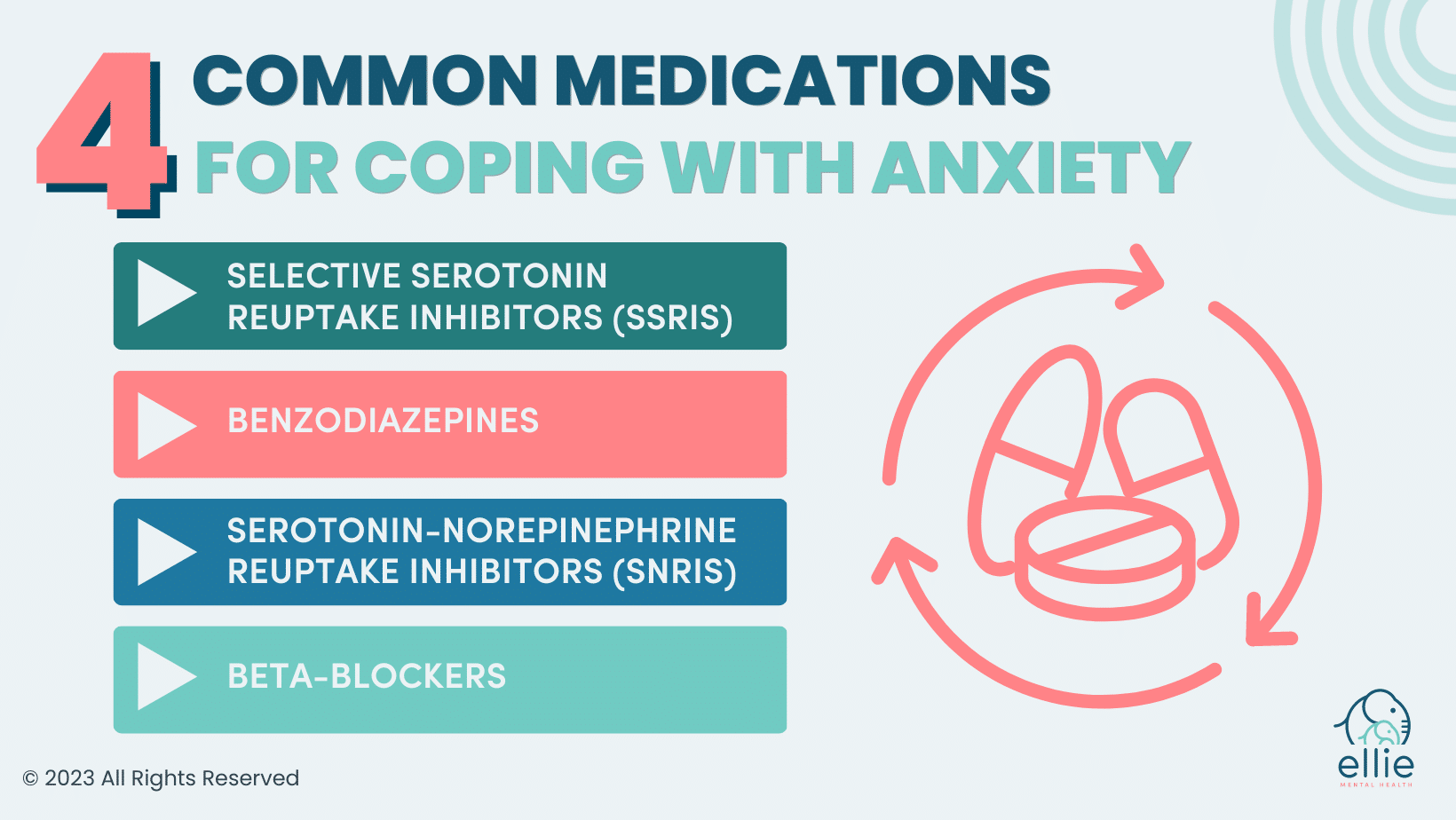Clinically reviewed by Justin Gerstner, MD
Have you ever been sitting in a meeting when all of a sudden you get an overwhelming feeling that something is off? You can feel it deep down and you can’t identify what’s wrong – but you know it’s there. Sound familiar?
Everyone gets anxious. This is because anxiety is a key component of our brain’s safety system in perceiving danger, or in telling us that something needs to be done with a sense of urgency. As such, anxiety is vital in our general function as human beings. However, when this system malfunctions, it’s probably time to reach out for help.
Despite how isolating and scary having anxiety can be, you should know that you are not alone. In fact, anxiety disorders are the most common mental health condition in the United States, affecting approximately 40 million adults.
With that in mind, we also believe that knowledge is king. If medication is decided to be a viable path for your recovery, perhaps breaking the ice on this idea is a good place to start. Below, we will discuss common medications used to treat symptoms of anxiety and how they might play a role in your psychiatric treatment.
Is anxiety impeding your everyday life? Contact Ellie Mental Health today and get matched with one of our compassionate providers. Let us help you get on the path toward better mental health.
What Medications are Used to Treat the Symptoms of Anxiety?

Mental health medications used to treat the symptoms of anxiety can be described as anxiolytics. These medications work through neurotransmitters in the brain such as serotonin, a common neurotransmitter that can help with both anxiety and depression.
First-line treatment of anxiety disorders usually includes Selective Serotonin Reuptake Inhibitors (SSRIs), which have been shown to be safe and effective in the treatment of anxiety disorders. Other medications shown to be effective in treating anxiety include Serotonin-norepinephrine reuptake inhibitors (SNRIs) as well as medication that might be used on an as-needed basis, such as benzodiazepines or beta-blockers.
It’s important to remember that anxiety disorders are common and treatable. If medications are right for you, your provider will work with you and recommend the best possible path forward to help you manage your anxiety. Generally, there are two ways medications may be used, either every day or as needed. If you find your level of anxiety to be impairing more than a few times a week, taking daily medication to address the symptoms may be helpful. Alternatively, if you struggle with occasional symptoms, an as-needed medication may work. Occasionally, both daily and as-needed meds are used in combination with each other to keep anxiety at bay.
Daily Medications
Daily medications work best when taken every day and may take a few weeks to a month to notice the most benefit, but may prevent symptoms before they happen. Here, we’ll outline a common variety of daily medications.
SSRIs & SNRIs (also known as Antidepressants)
Antidepressants are commonly prescribed as anxiolytics as they assist in the regulation of the levels of neurotransmitters in the brain, including serotonin and norepinephrine. Because of their safety and benefits, these are the first medications used to treat anxiety disorders.
Some commonly prescribed antidepressants for anxiety include selective serotonin reuptake inhibitors (SSRIs) such as fluoxetine (Prozac), sertraline (Zoloft), and paroxetine (Paxil), as well as serotonin-norepinephrine reuptake inhibitors (SNRIs) such as venlafaxine (Effexor) and duloxetine (Cymbalta).
SSRIs and SNRIs are usually taken once a day, and it may take several weeks before the medication takes effect. These medications are generally well-tolerated but have been known to cause some side effects, such as nausea, headache, insomnia, and sexual dysfunction. It is important to talk with your provider about any potential risks involved in your treatment.
Buspirone
Buspirone is a medication specifically designed to treat anxiety disorders. It works on the same chemical as SSRIs—serotonin–but in a different capacity. Buspirone is often used as a booster to a SSRI or SNRI to increase efficacy.
As Needed Medication
As the name suggests, “as needed” medication is taken when symptoms arise, and is commonly used to quickly combat symptoms associated with anxiety. The following medications typically work best when used only as symptoms or stressful situations arise – and they work quickly.
Benzodiazepines
Benzodiazepines are a class of medications that are commonly used to treat anxiety disorders. They work by enhancing the effects of GABA, a neurotransmitter that helps to reduce anxiety and promote relaxation. Benzodiazepines are fast-acting and can provide near-immediate relief for anxiety symptoms. Some of the most commonly prescribed benzodiazepines include diazepam (Valium), clonazepam (Klonopin) lorazepam (Ativan), and alprazolam (Xanax).
While benzodiazepines can be effective in treating anxiety disorders, it is important to note that they are associated with a risk of dependence and tolerance which could cause addiction. For this reason, they are often only used for brief periods of time.
Beta Blockers
Beta-blockers are a class of medications primarily used to treat hypertension (high blood pressure) and work by reducing heart rate and blood pressure. They act on the sympathetic system in your body, which is also known as the fight or flight system. Because they reduce the fight or flight response, Beta-blockers can also be used to manage anxiety symptoms. They have been particularly helpful with performance-specific social anxiety disorder. If your anxiety results in a rapid heartbeat or trembling, these may be helpful.
Beta-blockers are typically prescribed on an as-needed basis rather than as a daily medication. In many cases, they are often taken before a performance or other anxiety-provoking situations, such as a public speaking engagement or a job interview. The medication itself is generally well-tolerated, but, like all medications, they can have side effects. These include fatigue, dizziness, and nausea.
How Do I Know If I Need Anxiety Medication?
Starting a conversation about mental health is never easy. But these conversations are necessary in order to move forward in life and begin the healing process. That’s why we’re here!
Now that you have some insight into many factors in your treatment for anxiety, what’s the next step? At Ellie, we will never push you toward any solution you are not comfortable pursuing. This is your health journey; we are only here to support you along the way.
Diagnosing an anxiety disorder begins with an initial consultation, either with a therapist or prescriber. Many of our clients find that through counseling and talk therapy–along with implementing a few stress-relieving techniques–their anxiety can be pacified. However, if your anxiety remains, or medication seems like a good avenue to get you on the path to feeling better, you will want to work with our qualified experts.
Ellie has the best medical professionals in the country, and we will use that knowledge to get you turned toward clearer skies. Remember, these are all just steps along the path to living a full life once again.
At Ellie, we are here for you.
Is anxiety becoming a consistent problem in your life? Reach out to Ellie Mental Health today and get matched with a health professional to help guide you in your mental health journey.


